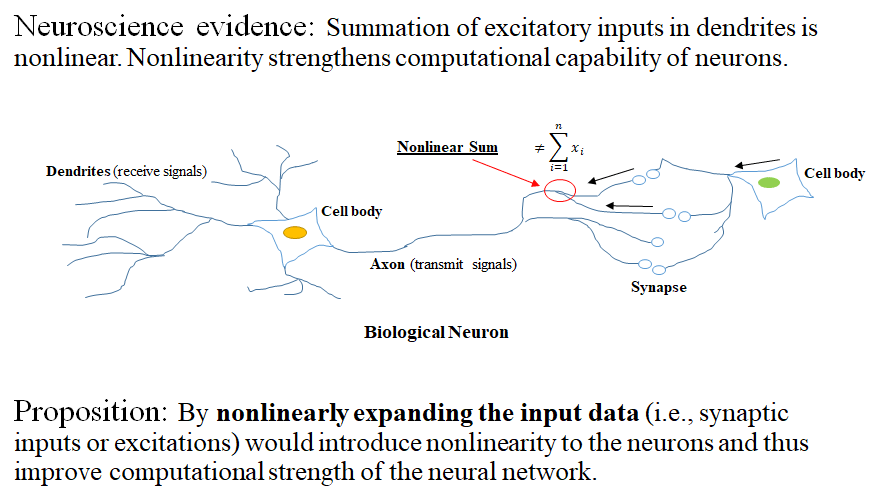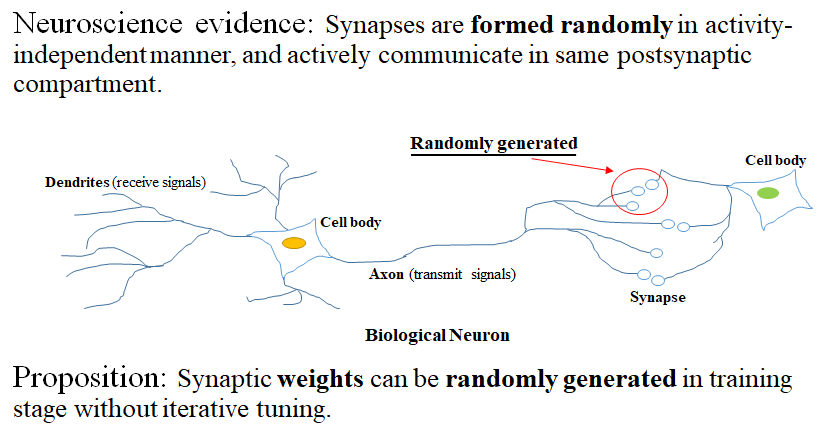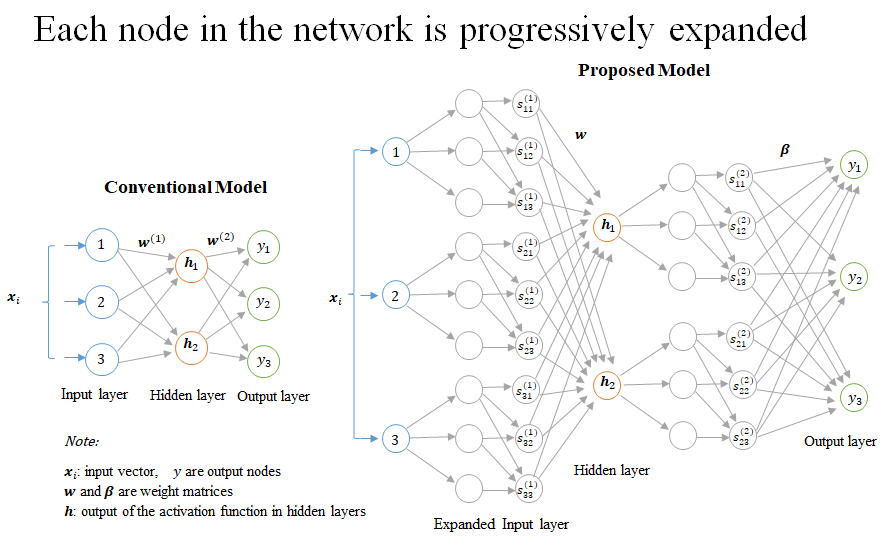PEN-Net
Progressively Expanded Neural Network
The human brain is capable of simultaneously processing high volumes of multi-modal data received every instant. In contrast, a machine sees input data simply as sequence of numbers. Although machines are computationally efficient, they are not as capable of human brain when comes to data abstraction and interpretation. Thus, mimicking the learning strength of human brain has been current trend in artificial intelligence. In this work, we present a biologically inspired neural network, named progressively expanded neural network (PEN Net), based on nonlinear transformation of input neurons to a feature space for better pattern differentiation. In PEN Net, discrete fixed excitations are disassembled and scattered in the feature space as a nonlinear line. Each disassembled element on the line corresponds to a pattern with similar features. Unlike the conventional neural network where hidden neurons need to be iteratively adjusted to achieve better accuracy, our proposed PEN Net does not require hidden neurons tuning which achieves better computational efficiency, and it has shown superior performance in classification tasks compared to the state-of-the-art technologies.




Publications
Paheding Sidike, Vijayan K. Asari, and Vasit Sagan, "Progressively Expanded Neural Network (PEN Net) for hyperspectral image classification: a new neural network paradigm for remote sensing image analysis," ISPRS Journal of Photogrammetry and Remote Sensing, vol. 146, pp. 161-181, Dec. 2018.
